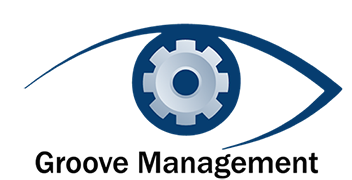Are You A Single Point Of Success?
Scaling a business is a challenge. The skills it takes to launch a successful business are quite different than the skills required to scale a business. In start up mode, it is all hands-on deck. Range is more important than depth as each person on the team must wear multiple hats, be agile and be willing to perform grunt work. Finding product market fit, building an operating model, crafting core values, finding office space, lining up suppliers and setting a sales motion all at the same time takes grit, determination and a ton of hard work. Scaling a business is taking it from a under $10 million in sales to $50 million plus. This transformation requires a different mindset, different skills and a systems thinking approach.
The Challenge of Scaling
The challenge is that the skills and mindset required to scale a business are quite different than the launch requirements. Scaling is about creating a division of labor, a repeatable process, finding efficiencies and building predictability into the model. Ron Gabrisko, Chief Revenue Officer at Databricks who has grown annual recurring revenue from roughly $20mm to an estimated $2.4 billion in 2024 once told me, “Heroics don’t scale”. While heroics can work for a startup, heroics don’t scale and therefore there needs to be a shift for scaling a business. Ron figured out the formula for success. His motto “Teamwork makes the dreamwork” is part of the recipe for success. Scaling a business is a team sport. It requires delegation of authority, structure and clear goals that have associated metrics.
Scaling moves people from athletes to role players. There are still athletics involved, but swim lanes are created and the division of labor is clear. A problem that often exists is that founders and leaders become so accustomed to playing hero that they struggle to make the shift. They are mired in being a single point of success because that is the role they played to launch the business. Of course, the corollary to a single point of success is that the person is a single point of failure. I worked with a highly successful entrepreneurial founder who had this struggle. In coaching her I knew calling her a single point of failure would not go over well, so I flipped the dialogue to the notion that a single point of success doesn’t work at scale.
The Role of Trust in Scaling
This begs the question, why would a highly successful entrepreneur struggle with scale? In my experience the answer lies in trust. Patrick Lencioni’s The Five Dysfunctions of a team model starts with trust at the foundation of any effective team. In my work leading team timeout workshops for executives teams globally, I have found that trust is often misinterpreted. I see two very different definitions of trust.
1) Trust: assured reliance on the character, honesty and ethics of an individual
2) Trust: Confidence in an individual’s skills, competence and decision-making ability
These are two very different ways of looking at trust. When I ask members of an executive team, do you trust each other. They almost always answer yes. When probed and asked if they trust that if they dropped their wallet that their colleague would return it with all the money in it, the answer is almost always yes. When I then ask, if they trust that their colleague could change the tire on their car for them, the answers don’t exude the same confidence.
Trust in the capabilities and competencies of team members is the key to scaling a business. Without trust leaders are reluctant to delegate. If they do delegate they tend to delegate tasks versus ownership. Task delegation is unempowering, time consuming and it does not scale. Delegation of ownership is critical to scaling a business. When leaders don’t delegate they are accused of micro-managing. They resort to doing the work themselves, playing hero and becoming a single point of success. In the past I have written about the fact that “people would rather be told what needs to be done, versus what to do.” Scaling a business requires leadership. As far as I am aware, there is no such thing as micro-leadership. That is because leadership is about empowerment and trust in the abilities of team members. If a leader cannot trust in the abilities of the team members, then they must question if they have the right team for the company stage.
Purposeful Action and Scaling
Scaling a business requires purposeful action. A decision-making model must be employed, team members must be clear on their roles, their responsibilities and their accountabilities. There must be metrics in place that can quantify what success looks like. Leaders in scale mode, must be introspective and ask themselves, “am I empowering my team to drive the business or am I becoming a bottleneck?” The bottlenecks usually occur when the leader reverts to hero mode. It is often difficult for a leader to have the self-awareness to see when they are causing bottlenecks. This is where asking for feedback becomes critical. As an executive coach, it is my job to challenge my coaching clients on their approaches at different stages of growth. Coaching is an incredibly effective tool for a leader trying to scale their business because it helps give them perspective. Coaching conversations allow the leader to step out of the day to day and to see themselves through the eyes of their coach. This can highlight both strengths and weaknesses in their approach. Clair Hughes Johnson in her book Scaling People reminds us, great leaders align personal and professional growth, creating teams that perform better together.
Scaling is not just about getting bigger—it’s about becoming better. With trust, clear frameworks, and empowered teams, leaders can build organizations that achieve lasting success. The key is to avoid becoming a single point of success if the desire is to build a sustainable scalable business.


